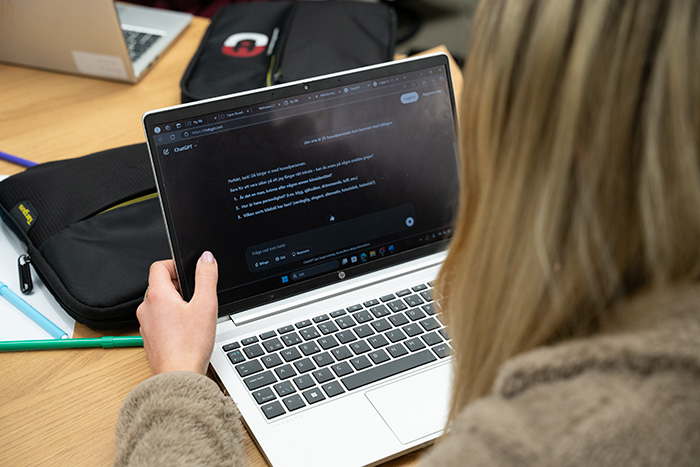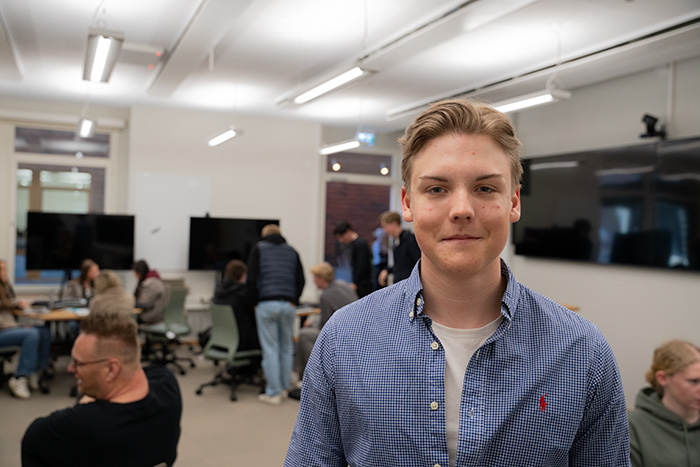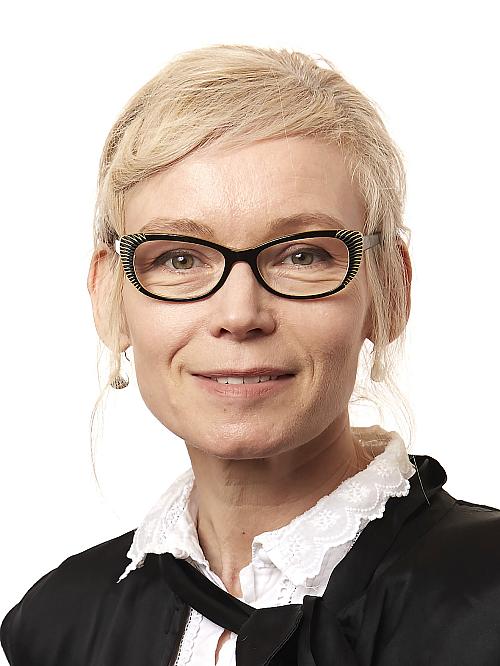High school students + AI = true
Two years ago, the Futures Day project was launched, an educational initiative in which students on the technology programme at Erik Dahlbergsgymnasiet (ED) use AI tools to write fictional stories about the future. With the help of Science Park, the project has now received funding to expand and develop the concept.

With the help from AI the students wrote fictional stories about the future.
The Futures Day project is based on previous HLK research funded by the Swedish Research Council (VR). The research has, among other things, used data-driven methods to investigate how teaching can be carried out. They have also taken note of surveys such as the Youth Barometer 2021, which shows that young people aged 15-24 are worried about the future. This concern is based on the world situation, among other things the advance of AI technology.
“Futures Day takes a student perspective on AI collaboration, which is unusual, and is designed to enable students to think critically, aesthetically and responsibly in their AI practices about the future that they are also helping to shape through the concept,” says Ylva Lindberg, Professor of Education at the School of Education and Communication (HLK) at Jönköping University (JU) and HLK's project manager for Futures Day.
More students in the future
The third edition of Futures Day was held on 25 April, once again at HLK. A new addition this year was that a social studies class from ED also participated.
“Technological development requires both technical and social science perspectives. We need to include the area of humanities and social sciences more in AI development. We will continue to expand to more social studies classes," says Ylva Lindberg.
150 students and staff from ED took over HLK and worked all day on writing a story about what the future might look like in about 50 years. Students explored together in groups how they could use AI tools for co-writing and creating text and images.
"Virtual world shaped by algorithms"

Alfons Dalteg thought Futures Day was fun.
One of the groups used AI to generate ideas for their story. Alfons Dalteg, one of the students in the group, appreciated the day.
“This is exciting. It's fun to do something other than just being at school, and it's fun to fully use AI to write the text. Our story is about living in a virtual world in the future, where the world is shaped by algorithms, and you live in the world you enjoy. In the story, there is a girl who does not feel very comfortable in this world. She manages to get out with the help of an old man she finds in an alley. We intend to let the story end on a bit of a cliffhanger so that you can think for yourself," says Alfons Dalteg.
Developing teacher education programmes
The aim of the Futures Day is to develop a methodology for incorporating AI tools responsibly and meaningfully into teaching and learning. Writing processes are observed and changes and developments over time are analysed. Students' writing is recorded directly through the computer they are using, allowing researchers to see what tools students are using, who is writing what, when and how. They also use a voice recorder that captures everything students discuss about the task.
"Learning how students collaborate with generative AI will also have implications for how we work with AI in teacher education. We will be able to see how perceptions of the future change and how AI collaborations develop, which we can directly utilize in teacher training, especially for future Swedish teachers," says Ylva Lindberg.
The Futures Day project is under constant development to get more data and results. Lars Carlsson, Senior Associate Professor at the School of Engineering at JU, has also been involved in the project. Lars will contribute with how the project can collect and analyze sensor data, such as keystrokes in the students' work, which can further help the researchers to discover how the creative process involves technology.
Ylva Lindberg is very pleased with how the day went.
“The day was perfect. Engaged students who don't shy away from discussing today’s toughest societal problems and exploring how they can be solved in the future. They show many smart ways to creatively collaborate with Generative AI," she says.
Expanding the concept with the help of funds
The project has now been awarded VFT funds (Validation for Application) via Chalmers Innovation Office.
“The award means that Futures Day has received a quality stamp and this without a single requirement for change from Chalmers Innovation Office, which is unusual in these contexts. It shows that we have a strong concept that can be scaled up and spread to different educational contexts in school,” says Ylva Lindberg.
Also involved in the project are Frida Selvander, first teacher at ED, Andrew Galbraith, first teacher in AI at ED and Therese Haglind, education strategist at the Education Administration at the municipality of Jönköping. At JU, in addition to Ylva Lindberg and Lars Carlsson, Anna-Lena Godhe, Professor of Education, and Maria Bäcke, Associate Professor of Education specializing in Applied IT, also participate.
Read more about the project here (In Swedish) External link, opens in new window.
- Professor of Education (Language and Literature Didactics)
- School of Education and Communication
- ylva.lindberg@ju.se
- +46 36-10 1495

